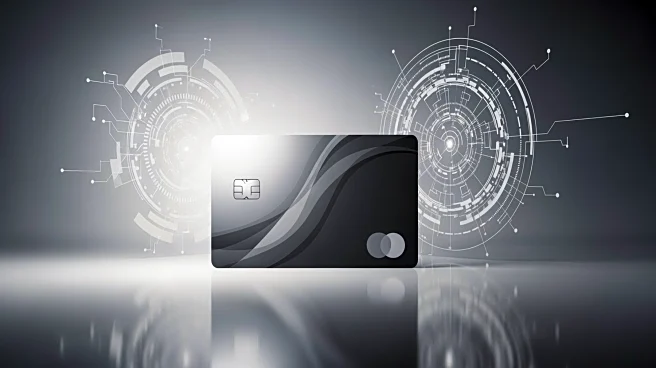What's Happening?
The Fizz Card is a new debit card designed to help U.S. consumers build credit without undergoing a credit check. Unlike traditional credit cards, the Fizz Card links directly to a user's bank account,
setting a spending limit based on the available balance. Purchases made with the card are reported to credit bureaus, aiding in the establishment of a positive payment history. The card offers 3% cash back in a spending category of the user's choice, with the option to change categories weekly. It also features a 'SafeFreeze' function that locks the account if payments are missed or if the bank balance is too low, preventing overspending and late payments. The card charges an annual fee of $59.99 for students and $129.99 for non-students.
Why It's Important?
The introduction of the Fizz Card is significant as it provides an alternative for individuals who may not qualify for traditional credit cards due to credit checks or minimum credit score requirements. By reporting transactions to credit bureaus, the card helps users build credit, which is crucial for financial stability and access to better financial products in the future. This can particularly benefit students and young adults who are starting to establish their credit history. Additionally, the card's cash back rewards and safety features offer incentives and protections that can enhance financial management skills among users.
What's Next?
As the Fizz Card gains traction, it may influence other financial institutions to develop similar products that cater to consumers seeking to build credit without traditional barriers. The card's success could lead to increased competition in the credit-building market, potentially driving innovation and better terms for consumers. Stakeholders such as credit bureaus and financial advisors may also take interest in how such products impact credit scores and consumer behavior over time.
Beyond the Headlines
The Fizz Card's approach to credit building raises questions about the evolving nature of credit assessment and the role of alternative financial products in democratizing access to credit. It challenges the traditional reliance on credit scores and checks, potentially paving the way for more inclusive financial practices. This shift could have long-term implications for how creditworthiness is evaluated and how consumers interact with financial institutions.









